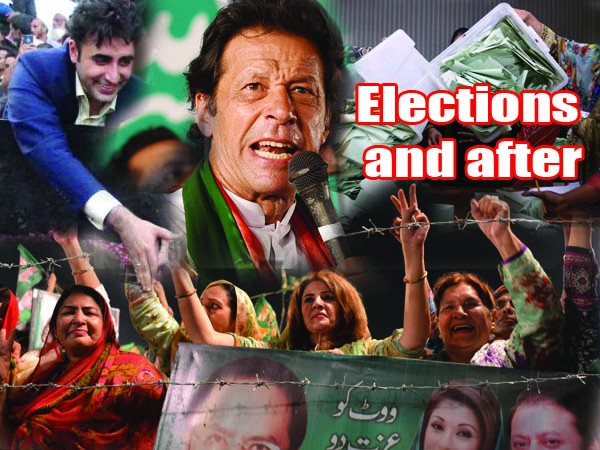

The elections 2018 have been held, contrary to all doubts created in the weeks and months before July 25. The government formation is in the works and is in fact pretty much expected, both at the centre and in the provinces.
Like most elections held in this country, the fairness of this one is under question. There was a sustained pre-poll political engineering that began in Karachi with the dissolution of MQM, the most formidable political force in urban Sindh and extended to the courts’ response to Panama Leaks leading to questionable judgments to strong-arm tactics used against media to goading the electables inside and outside the assemblies to leave and join parties to finally allowing banned organisations to contest elections.
A lot was made of the free and fair polling on election day which remained largely hassle free to be fair. But serious doubts are now being raised about the counting process, the treatment of polling agents and failure of the Results Transmission System.
It is unfortunate that despite all procedural improvements put in place in the last five years, the conduct of the Election Commission (ECP) as a neutral arbiter remained as questionable this time as it did in all previous elections. Holding an election in a country the size of Pakistan is no mean feat. One hopes the next parliament addresses all the perceived and genuine concerns of individuals and political parties in a manner that the country can go into the next election with confidence.
In our Special Report today, we have analysed the aftermath of Election 2018. The discussion is focused on the political engineering to observers giving their verdict about the polls. PTI’s victory in Karachi cannot be isolated from their vision about the city and its multi-faceted challenges. We have an article on PPP’s performance in this election; especially the question as to why is the party’s success in Sindh not considered an indicator of its performance like PTI’s win in KP. The religious groups and new formed movements are also dealt in detail.
Last but not least is an analysis of Imran Khan who led his party to an unprecedented victory. Was it the transformational prowess of the leader that worked in his favour or was it the failure of ‘hereditary’ and ‘conventional’ corrupted politics that earned him the crown? This is a subject which shall continue to be discussed for some time to come.